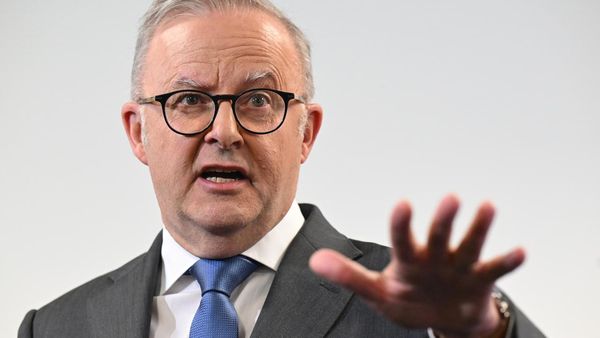
It happens to the best of us — you charge too much on your credit card, and when the bill comes, you find you can’t make even the minimum payment. Maybe you had a financial emergency or job loss, or something else happened that made you unable to meet your obligations. What do you do?
I asked ChatGPT what I should do if I can’t pay my credit card bill, and here’s what it had to say.
Find Out: Do Your Student Loans Affect Your Credit?
Read Next: 7 Ways To Tell If You're Rich or Middle Class -- It's More Than Your Paycheck
Don’t Ignore the Problem
“Avoiding the issue will only lead to more fees, interest and credit score damage,” ChatGPT said.
This is really good advice. The last thing you want to do if you can’t pay your bill is to put your head in the sand and hope the problem goes away. Spoiler alert: It won’t. Recognize that you need to take action and start as soon as you know there will be an issue making your payment on time.
See More: I Asked ChatGPT When I’ll Be Able To Retire Based on My Current Finances — Here’s What It Said
Contact Your Credit Card Issuer Immediately
ChatGPT recommended, “Call the customer service number on the back of your card. Explain your situation. Ask about:
- Hardship programs: Some issuers offer reduced payments, interest rates or temporary forbearance.
- Waiving late fees or interest: Especially if this is your first time missing a payment.”
Reaching out to your credit card company before they reach out to you can go a long way toward resolving your issue quickly and inexpensively. Some card issuers have a grace period if this is your first missed payment — you may be able to have an extra 30 days to make that payment. This is rarely automatic, though, so be sure to call — don’t just assume they’ll extend you the grace period.
If you think this may be an ongoing issue (because of a job loss, for example), be sure to tell your card issuer. Be prepared with information about how much you can pay and when. Having this information will put you in a better position to negotiate a compromise with the credit card company.
Pay What You Can
“Even a partial payment is better than none. It may reduce fees and show goodwill,” said ChatGPT.
Credit card issuers understand that emergencies arise, and sometimes things happen that may prevent you from paying as agreed. They want to know that you understand that you owe the money, and that you will pay when you can. They also want to know they’re not taking a back seat to other creditors. Making a partial payment will show them that you intend to pay, and you’re doing your best to do so.
Review Your Budget
“Cut unnecessary expenses (and) redirect money toward at least the minimum payment, if possible,” ChatGPT said.
Even if a missed payment is a one-time thing, it represents a wake-up call for your budget. Take a look at expenses you can cut so you can catch up on your credit card payments, and consider an emergency fund to avoid missing payments down the road.
Prioritize Essentials
“Focus on covering housing, utilities, food and transportation first,” said ChatGPT. “If you have to miss payments, unsecured debts like credit cards typically come after essentials.”
You need to pay for the most important things first, like keeping a roof over your head, having enough to eat and being able to get to work. Once those things are taken care of, you can begin to make some headway on your credit card payments. If you’ve already reached out to your card issuer, you should have a little wiggle room to make sure your necessities are taken care of first.
Avoid Using Other Debt To Pay
ChatGPT said, “Avoid payday loans or taking on more high-interest debt just to make a credit card payment. This can make things worse.”
Borrowing money to make your minimum credit card payment may seem like a good idea, but it can quickly spiral out of control. Piling more high-interest debt on top of what you already owe is not a good long-term solution.
Explore Credit Counseling
“Contact a nonprofit credit counseling agency (like those approved by the National Foundation for Credit Counseling — NFCC),” said ChatGPT. “They can help you:
- Create a budget.
- Possibly enroll in a debt management plan (DMP).”
There are resources available to help you if you’re in over your head with credit card debt. These agencies can help you negotiate with your creditors, which may bring your interest rate and minimum payment down to a manageable level. Make sure you use a nonprofit agency, though — there are plenty of companies around that will happily try to make money off of your misfortune, so watch out for them.
Monitor Your Credit
“If you miss payments, your credit score will likely drop,” said ChatGPT. “Keep an eye on your credit report and dispute any errors.”
A late or missed payment will show up on your credit report and will likely bring your score down. The good news is that if it’s a one-time occurrence, your score should recover fairly quickly.
Plan For the Long Term
ChatGPT has advice for your long-term financial health. It said, “Once things stabilize:
- Rebuild your emergency fund.
- Consider consolidating or refinancing debt if it lowers your interest rates.
- Use automatic payments or reminders to avoid missed payments in the future.”
A missed or late credit card payment should be a red flag that your current financial planning needs some attention. You should have an emergency fund of three to six months’ worth of living expenses, so if you ever find yourself in a situation like this again, you can tap that to make your payment.
Consolidating your high-interest debt with a lower-interest debt consolidation loan or transferring your balance to a card with a zero-interest introductory rate so you can pay it off can be a good idea. If you do this, be sure to pay off the debt under the new terms, and don’t rack up your credit cards again!
Making sure your credit cards are set to automatically pay at least the minimum payment will ensure you don’t miss a payment inadvertently.
ChatGPT had some good advice for what to do if you can’t pay your credit card, both in terms of the immediate issue and how to prevent it from happening in the future.
More From GOBankingRates
- New Law Could Make Electricity Bills Skyrocket in These 4 States
- I'm a Self-Made Millionaire: 6 Ways I Use ChatGPT To Make a Lot of Money
- 5 Strategies High-Net-Worth Families Use To Build Generational Wealth
- Mark Cuban Says Trump's Executive Order To Lower Medication Costs Has a 'Real Shot' -- Here's Why
This article originally appeared on GOBankingRates.com: I Asked ChatGPT What To Do If I Can’t Pay My Credit Card Bill







